What women should want to know about their breast health

Repeatedly, in our office, we hear the same questions and concerns from women about their breast health. Sugar causes cancer; underwire bras shouldn’t be worn; don’t use deodorant; if there is no family history of breast cancer, I won’t get it; I’m too young to get breast cancer … we hear the same misconceptions over and over. Social media doesn’t help. Friends share fabricated cancer horror stories, and the epidemic of bad information intensifies.
During The Breast of Everything podcast, Comprehensive Breast Care Surgeons Linsey Gold, DO; along with Ashley Richardson, DO; set the record straight on breast health and what women should want to know about their breasts and breast cancer.
Here are a few highlights from the podcast:
Sugar does not cause cancer, underwire bras do not cause cancer and wearing deodorant does not cause cancer. When women go for a mammogram, they are told not to wear deodorant, antiperspirant or other lotions or powders under their arms or in the chest area because these products may contain metallic substances (usually from aluminum in the product) that resemble calcifications, which show up as bright white specs or dots on the mammogram. Sometimes calcifications in the breast can mean an early cancer is developing.
Breast cancer risk-reduction products you may see on the shelves of stores will not reduce your risk of breast cancer.
Many women overestimate their risk for breast cancer, while others underestimate their risk. For example, if your grandmother had breast cancer when she was in her 70s, that does not necessarily mean you are at high risk for getting breast cancer. Don’t overestimate this, but also don’t overlook it. Learn what your risks are, and what risk reduction strategies you can take by talking with your health care provider.
Some risk reduction strategies include monthly breast self-exams, reducing your body mass index (BMI) and knowing your family history of cancer. Remember to look at your entire family history (not just your mother’s) and all cancers in the family, not just breast cancer.
Talk with your family physician about genetic testing if you are concerned about your family’s cancer history. Today, testing can be conducted for more than 80 different gene mutations and the cost can be as little as $250.
The breast surgeons also find that many women go on auto pilot after breast cancer surgery and treatment, thinking they are cured. They need to continue regular imaging tests, stay active, eat right and follow their physician’s post cancer recommendations.
__________________________________
If you have a subject you would like the surgeons to discuss, please email your ideas to https://compbreastcare.com. The doctors want to hear from you! The views, thoughts and opinions shared in “The Breast of Everything” podcasts are intended for general educational and informational purposes only and should not be substituted for medical advice, treatment or care from your physician or health care provider. Always consult your health care provider first.
